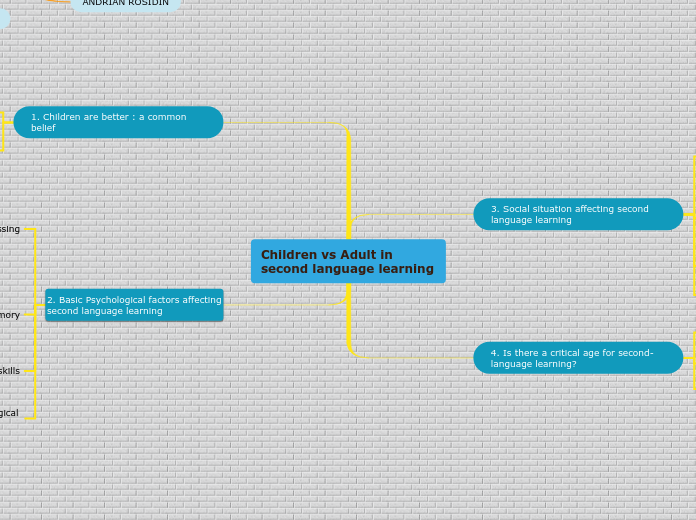Children vs Adult in second language learning
3. Social situation affecting second language learning
3.1 The natural situation
Characteristics of the natural situation
With age, language is more essential for social interaction
Older children can have a problem
3.2 The classroom situation
The classroom is isolated from other social life
learning language as part of a group and not as an individual
3.3 Who is better? chilsren or adult
In a natural situation
prediticting from the values in the table
In the classroom situation
3.4 ESL or EFL community context
4. Is there a critical age for second-language learning?
4.1 Adults can learn a second language
4.2 No demosntrated critical age for learning syntax
4.3 Critical age for pronunciation
1. Children are better : a common belief
Psychological
Intellectual Processing
Motor Skills
Memory
Social
2. Basic Psychological factors affecting second language learning
2.1 Intellectual processing
Explication
The nature of Explication
Why a language cannot be learned completely by explication
Explication is rarely applicable to young children
Teaching simple and complex rules
Induction
2.2 Memory
Vocabulary learning and rote memory
Syntax learning and episodic memory
Children's memory ability
2.3 Motor skills
Artiuculators of spech
Decline in general motor skill
Decline in ability for new articulation
2.4 Two other important psychological variable: Motiation and Attitude
Motivation
Attitude
